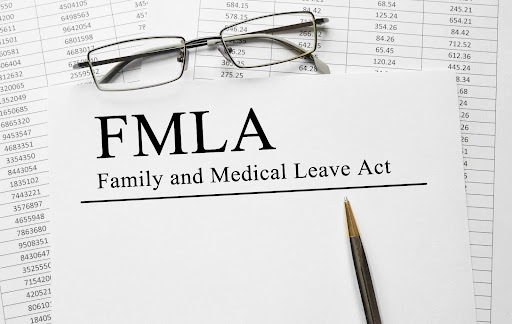According to the Bureau of Labor Statistics, about a quarter of the civilian workforce has access to paid family leave. This benefit may be guaranteed by the Family and Medical Leave Act (FMLA). The FMLA may affect various family law cases, including divorce, child custody, and child support. A worker may want to consider the family law implications of the FMLA before going on leave. Family law attorneys in Virginia may be able to help workers review their options, plan effectively, and mitigate potential issues related to divorce or custody. With assistance from these legal professionals, it may be easier to take advantage of the FMLA while still pursuing positive outcomes in family law cases. To learn more about the next potential steps, consider contacting DiPietro Law Group, PLLC at (571) 626-7389.
What Is the Family and Medical Leave Act?
President Bill Clinton signed the Family and Medical Leave Act into law in 1993. Under federal law, eligible workers in the United States can take time off in order to seek treatment. They may also use the FMLA to care for their sick or injured family members, without worrying about losing their jobs. While the FMLA only guarantees unpaid family leave, it provides job protection for workers. Although employers are not required to pay workers who take family leave, they may not fire them or retaliate against them. Not everyone qualifies for these protections, however. A worker must log 12 months of work and at least 1,250 hours with their employer before they become eligible for FMLA benefits.
Can I Take FMLA Leave Due to Divorce?
The Department of Labor states that employees may take up to 12 weeks of unpaid leave if they are unable to work due to a serious health condition. Divorce may cause a serious health condition in various ways. First, divorce could lead to a serious mental health disorder that leaves employees unable to work. This might include post-traumatic stress disorder (PTSD), severe depression, substance abuse, and severe anxiety. If an employee receives a diagnosis from a mental health professional, it may be possible to take divorce-related leave under the FMLA.
A spouse might also take unpaid leave due to physical injuries caused by family violence. Many spouses end their marriages after experiencing domestic abuse, and they may need treatment for various mental and physical injuries. Spouses should also know that they can take family leave to care for their children during or after divorce. For example, a child might develop a mental health condition due to the stresses of divorce. Alternatively, a child may experience physical injuries due to family violence.
How Does FMLA Affect Child Custody?
Before a worker takes advantage of the FMLA, they may want to consider the potential child custody implications. Among many other factors, courts in Virginia consider the health of each parent when making decisions about child custody. When a worker takes leave under the FMLA, this may signal that they are physically unfit to care for their children. Family courts could become particularly concerned if parents take unpaid leave due to allegedly severe health conditions. For example, a spouse may decide to take 12 weeks of unpaid leave due to a crippling mental health condition brought about by divorce-related stress. The details of this health condition could become relevant during custody proceedings. Courts may decide that if a parent is unable to work due to their mental health issue, they are also unable to care for their children.
As a result, parents might want to avoid taking FMLA leave until they speak with an experienced family law attorney in Virginia. During a consultation at a law firm like DiPietro Law Group, PLLC, parents may be able to discuss the potential implications of FMLA leave in more detail. That said, FMLA leave is inherently temporary – representing a maximum of 12 weeks off. Parents who take FMLA leave may argue that their health conditions do not substantially affect their childcare abilities. After 12 weeks, parents can reassess their situations and potentially modify custody agreements. This could be necessary in cases involving permanent disabilities.
How Does FMLA Affect Child Support?
The Family and Medical Leave Act should have a minimal effect on child support. First, the temporary nature of FMLA leave is unlikely to qualify as a significant “change in circumstance” during modifications. In other words, a parent would likely fail to reduce their child support obligations as a result of the lost income they experience during unpaid leave. In the eyes of the court, three months of missed earnings are not enough to justify altering the original support agreement. After all, the family would need to revert back to the original agreement after those three months pass. However, a parent could potentially pursue a modification if this unpaid leave is connected with a permanent disability.
What About Paid Family Leave?
Some employers may also qualify for paid family leave. Virginia has its own paid family leave program (VA PFL), and some employees may take paid leave through employer-specific programs or benefits. However, the VA PFL program is completely voluntary. Employers are under no obligation to participate, and it is not legally mandated in the same way as the federal FMLA.
Discuss the Specifics of Family Law Cases With DiPietro Law Group, PLLC
The Family and Medical Leave Act can affect family law cases in subtle ways. Families may gain various insights into these effects through online research, but it is important to remember that each situation is unique. Not only are there many injuries and mental health disorders that can trigger FMLA benefits, but there are also many different family law situations to consider. Based on these varying factors, it may help to discuss specific circumstances with a Virginia family law attorney. These legal professionals can assist with issues related to divorce, child custody, property division, child support, alimony, and more. Consider contacting DiPietro Law Group, PLLC at (571) 626-7389 to continue this dialogue in more detail.


